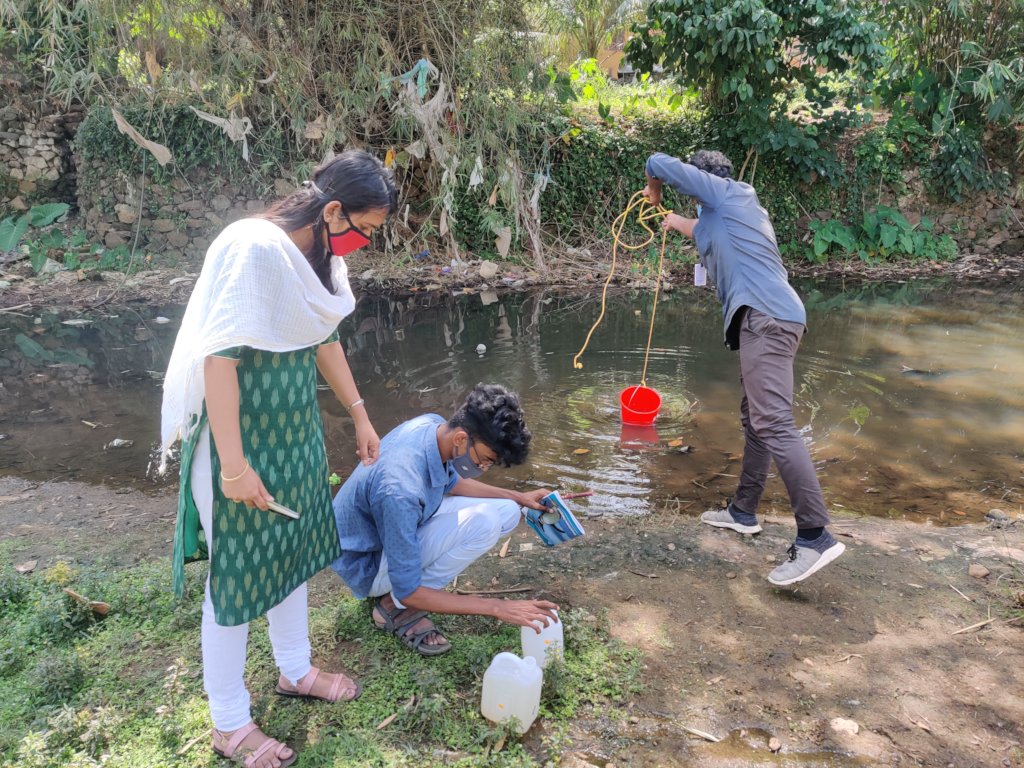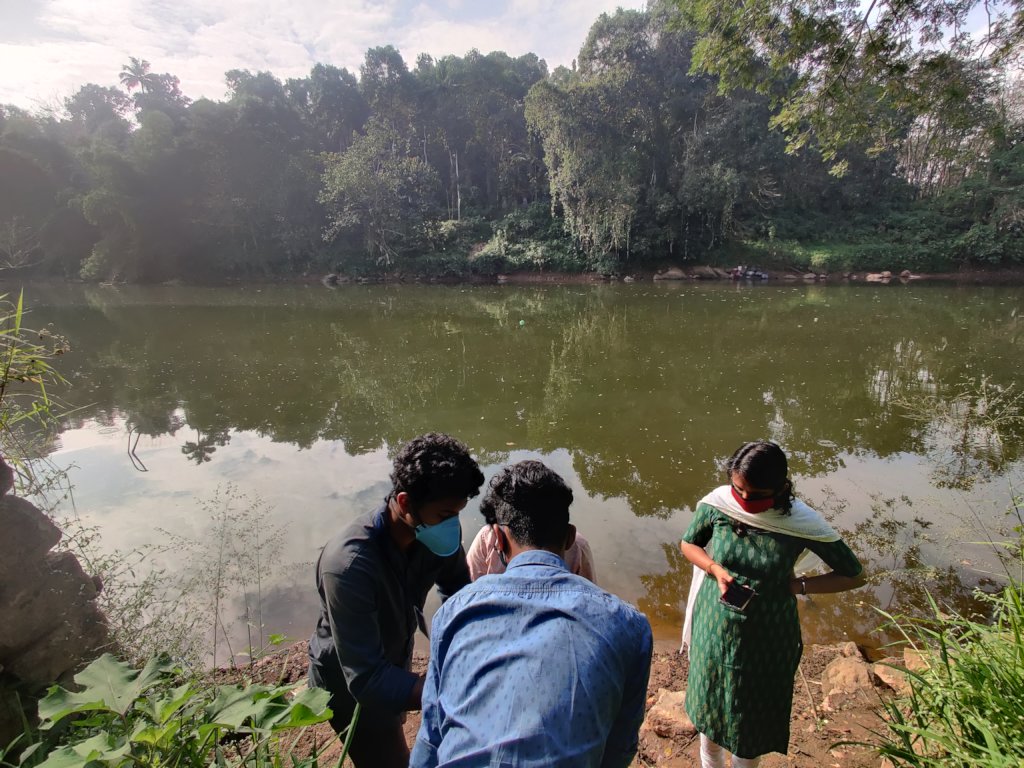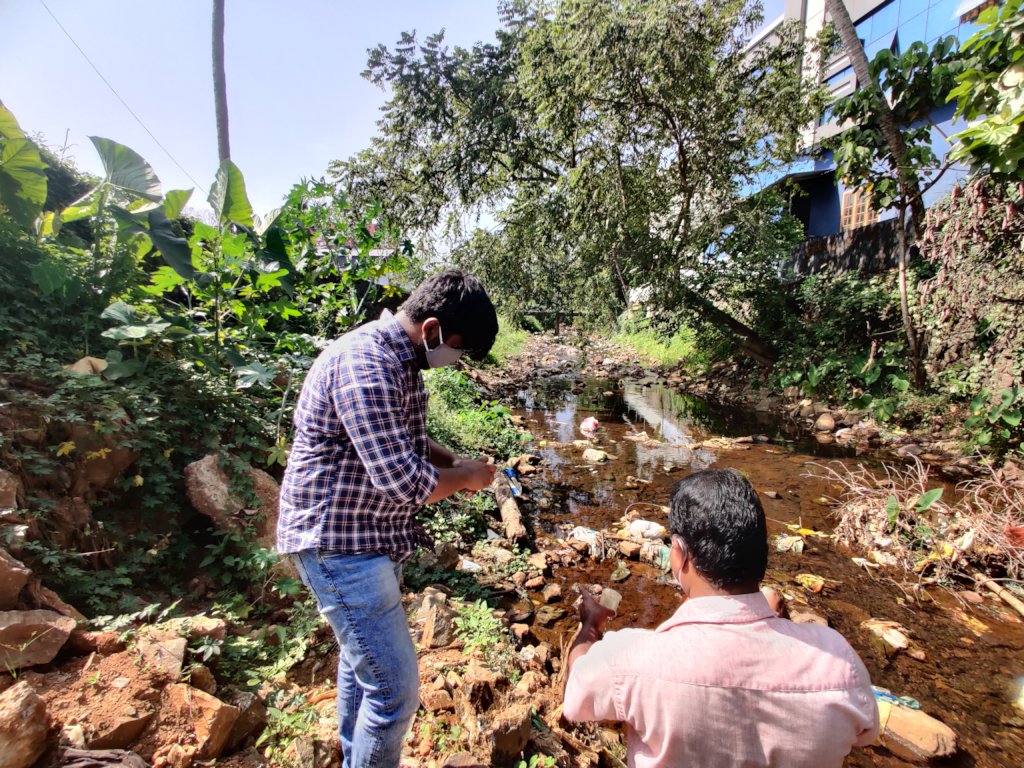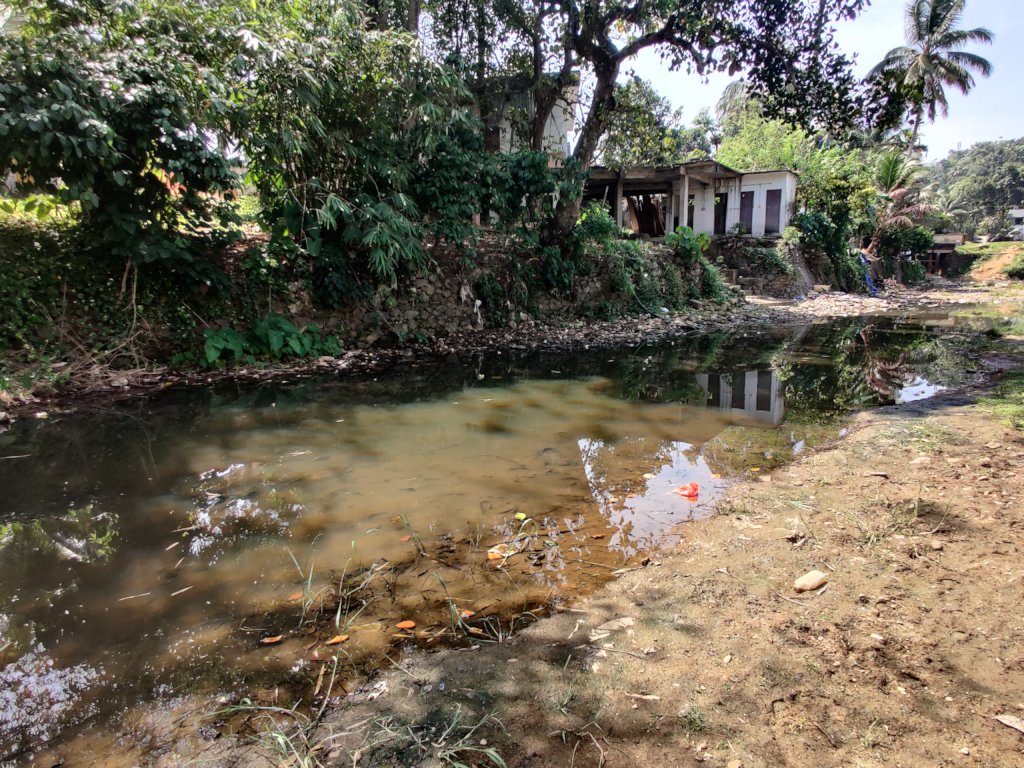By Anoopa Mathews | Project Assistant
Manimala River - an important waterway of Central Travancore, which flows through the districts Kottayam, Idukki (in Kerala) and afterwards joins with Pampa, another major river of Kerala - is highly polluted due to the effluent discharge from nearby factories and other outlets. This has posed serious health risks to the river bank community.
The recent water quality studies of the Manimala River shows that the water quality in the river is above the permissible limits. A total of 10 samples were collected and that includes water samples as well as effluent samples. At these stations physical as well as biological parameters were tested. The pH of the samples showed a variation in many regions, as there are regions were pH level is below and above the permissible limit. Micropollutants, heavy metals, factory and toilet discharge, market wastes, etc. are the major source of pollutants in the river. These sources are directly releasing untreated sewage waste into the river. The samples collected showed very low level of TDS in the river, which inturn reduces the level of useful minerals to the people who is depending on the river as a source of drinking water. The water quality of is highly depleted which has made the water unusable by the community even to meet their basic water requirement. At every point there is the presence of faecal coliform bacteria's. During our study community responded that they are facing diarrhoea and other physical issues and the major reason behind this is due the infectious pathogens which they get exposed while drinking contaminated water. This may also lead to other diseases like helminth infections, cholera, etc.
Recognizing the importance of the public health threat of drinking contaminated water, TIES is striving through its awareness and research initiatives - to make people accessible to safe drinking water- to reach the Sustainable development goal. As a result of this water quality studies will be widening to more regions which will help in identifying sources of pollution. Manimala river is a source of recreational activities, water supply for irrigation, bathing, drinking, washing, etc. This will inturn increases the exposure to pathogens.
This polluted water is posing risk to the public health, food security and the economy. TIES is continuously undergoing studies that provide data which is critical in understanding the underlying causes and thereby improving the policies which include source control, waste treatment, ecosystem management and other forms of local governance.
Project reports on GlobalGiving are posted directly to globalgiving.org by Project Leaders as they are completed, generally every 3-4 months. To protect the integrity of these documents, GlobalGiving does not alter them; therefore you may find some language or formatting issues.
If you donate to this project or have donated to this project, you can receive an email when this project posts a report. You can also subscribe for reports without donating.
Support this important cause by creating a personalized fundraising page.
Start a Fundraiser


